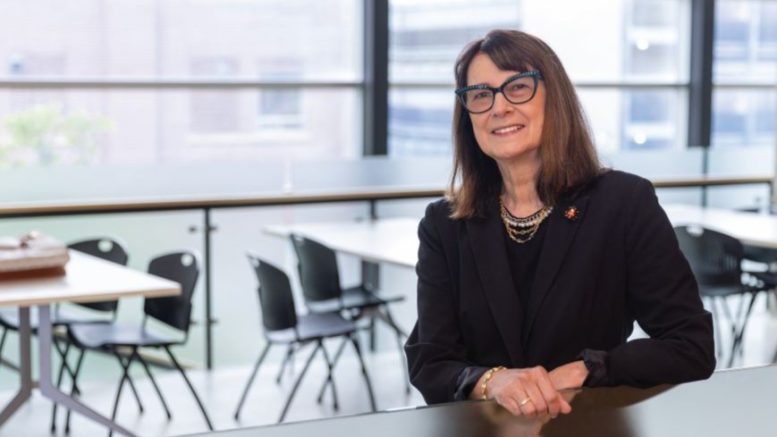Dr. Silvia Alessi-Severini, a long-serving U of M professor in pharmacy who retired recently, has been appointed as a senior scholar.
According to the university’s Senior Scholar Policy, a senior scholar is an individual who has retired from a full-time academic appointment and wishes to continue active research at the university. The policy allows senior scholars to have continued access to office or laboratory space, eligibility to apply for grants and contracts under the university and other discretionary privileges.
Alessi-Severini has taught undergraduate pharmacy students for more than 20 years and specialized in toxicology and pharmacoepidemiology. She earned her PhD from the University of Alberta in 1993, following undergraduate studies in pharmacy and chemistry in Italy.
Before transitioning into academia, she worked as a consultant for both provincial and federal governments in Canada where she provided expert advice on medication use and reimbursement policies, contributing to the Alberta and Manitoba provincial governments.
Reflecting on some significant achievements that have contributed to this appointment, she made mention of her contributions to the college of pharmacy at the U of M, where they introduced a concentration in pharmacoepidemiology. She said this initiative allowed graduate students to focus on the study of drug use in various populations, culminating in a recognition of the concentration on their transcripts upon completing a master’s or PhD in pharmacy. She also acknowledged the support of deans and a growing team of researchers, ensuring its sustainability beyond her retirement.
She said, “I’m very grateful that I got to have this appointment. I’m thankful to my colleagues, […] to be involved with the college in some sort of capacity, mostly for research.”
She added that this role allows her to remain involved with the college, especially in research as she still has ongoing projects. These projects include collaborations with nursing and physical therapy sciences.
She disclosed that the appointment to the senior scholar position is for two years, with the option for renewal. In addition to research, she also reiterated her support for the college’s courses in pharmacoepidemiology and is open to giving occasional lectures or providing advice when required.
Touching on some lessons from her decades of experience in drug safety and efficacy research, Alessi-Severini emphasized the importance of understanding the use of medications, particularly antipsychotics in children. She noted that this type of research contributed to a growing body of work that informs both medical practitioners and policymakers. She highlighted the importance of using research findings to influence decisions on medication restrictions and promote the use of more effective alternatives.
She also discussed the evolving role of academics and policymakers in combating misinformation, particularly in the age of social media. She stressed the need for trusted sources of information and the responsibility of academics to communicate evidence-based findings effectively.
Alessi-Severini mentioned the importance of inspiring and attracting students to this expanding and impactful field. She said there has been tremendous growth in the student body at the college of pharmacy, evolving now to a significant and vibrant group today. She advised students both undergraduates or graduates to follow their interests passionately.
“I always say never regret to get more education,” she said. “I’ve never heard anybody say, ‘oh, I regret [getting] my masters’ or that ‘I wasted my time.’”
Pharmacotherapy is a rapidly expanding field, according to Alessi-Severini, especially as regulators are getting more interested in high-quality and methodologically sound data produced to guide decisions. She added that this growing demand creates exciting prospects for aspiring researchers and those building careers in the field.


